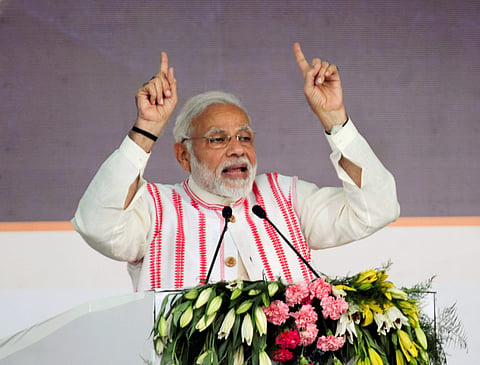

NEW DELHI: As the mega health insurance, Pradhan Mantri Jan Arogya Yojana, was launched by the government in several states on Sunday, some health and industry experts have pointed out that a stronger mechanism for patient safety needs to be ensured as even very small hospitals in the private sector, without any accreditation, have been empanelled.
At present, the government will only rely on self-declaration by hospitals on the clinical outcomes of treatments and procedures carried out on beneficiaries.
Officials in the National Health Agency, which has been constituted to implement the scheme, said about 10,000 hospitals, of which 50 per cent are private hospitals, have been empanelled where the beneficiaries can avail the services.
Most of the private hospitals that have come forward to join the scheme are 50-bedded or lesser. As per the government criteria, any 24x7 hospital with at least 10 in-patient beds, three qualified nurses and two MBBS doctors, specialists, pharmacy, blood bank, laboratory, dialysis unit, endoscopy and X-ray facilities and ambulance and emergency services can make the cut.
Of about 60,000 total hospitals in the country, only 600-odd are accredited by the National Accreditation Board for Hospitals and Healthcare Providers. But the government has not made it mandatory for only NABH-certified hospitals to seek empanelment.
“For patient safety, though there are clinical outcome standards clearly laid out under the scheme, I find it worrying that the government is only relying on self-declaration by the hospitals to assess service quality,” said Girdhar J Gyani, director-general of the Association of Healthcare Providers of India and member of NABH review committee.
“This could particularly mean trouble for states like Uttar Pradesh, Bihar, West Bengal and others which have no experience of dealing with a major public health insurance programme,” he added.
Anant Bhan, a researcher in global health and policy, stressed that service quality in hospitals was directly linked with overall mortality and morbidity rates and pointed out that the government had not paid much attention to this aspect.
“The programme is being launched within months of announcement and crucial points like patient safety have not been given as much attention,” Bhan said, cautioning that this could make policymakers “sit and fill glaring gaps” later.